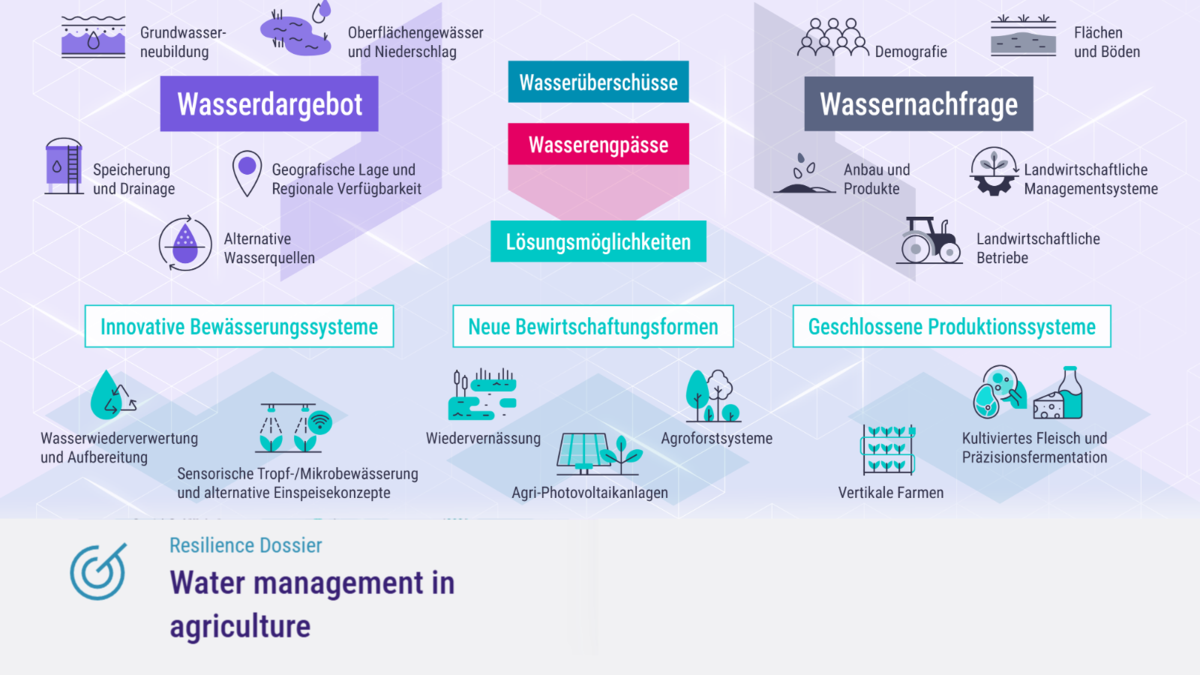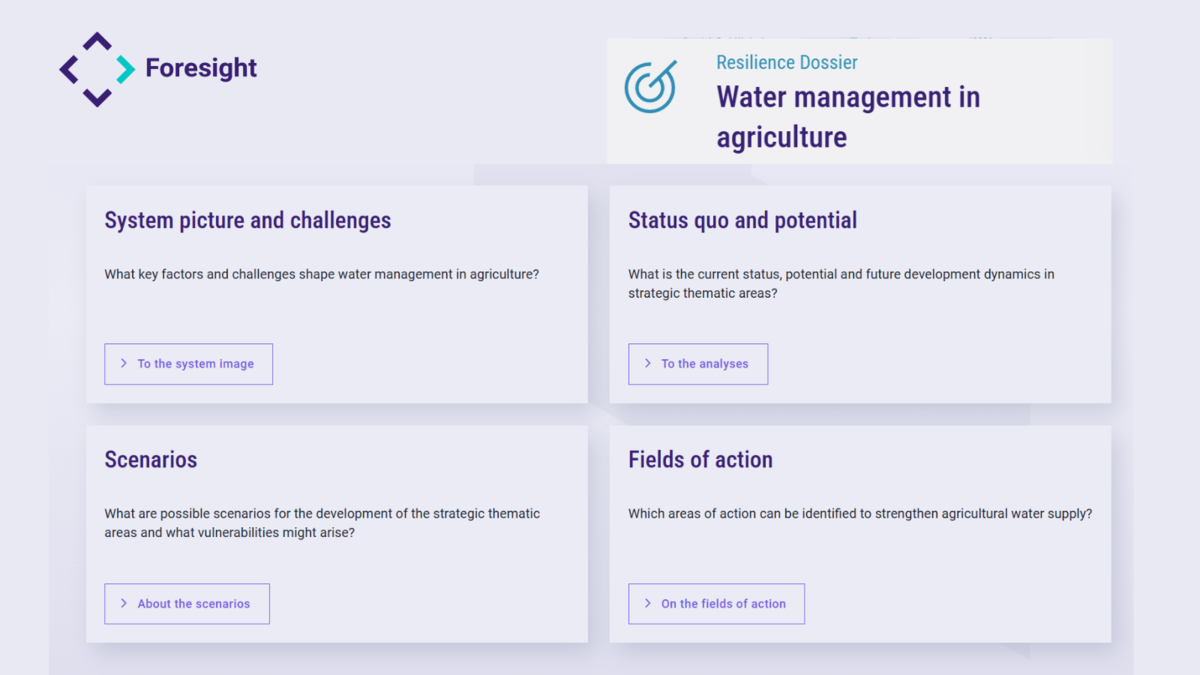Options for more resilient water management in agriculture
Water supply is fundamental to agriculture, yet it is also one of its greatest weaknesses. Climate change, geopolitical crises and technological upheavals are posing new challenges to the agricultural water supply. How can it become more resilient?
The new Resilience Dossier 2025 explores ways to achieve this, focusing on innovative irrigation, new forms of cultivation, and closed production systems.
Resilience for the agricu
The new Resilience Dossier 2025 explores ways to achieve this, focussing on innovative irrigation, new forms of cultivation and closed production systems.
Resilience for the agricultural system
Building on the findings of the Resilience Radar 2023/2024, the analysis examines how water management in agriculture can better cope with systemic risks. It focuses on three strategic areas with high future potential:
- Efficient irrigation systems conserve resources and increase productivity, but create new technological dependencies.
- New forms of cultivation such as agri-PV, agroforestry and rewetted moorlands, increase adaptability, but require investment and expertise.
- Closed production systems, such as vertical farming, reduce dependence on weather and climate, but pose risks due to their high energy requirements and limited scalability.
The resilience check shows that resilience is not achieved through individual measures, but through the interaction of ecological, technological and social innovations.
Future scenarios and options for action
This dossier assesses the current situation and development potential, identifies key vulnerabilities and drafts future scenarios up to 2050. It thus provides a scientifically sound basis for strengthening the long-term resilience of agricultural water management.
All results on our foresight platform
Discover the Resilience Dossier 2025 and other results of our ongoing foresight process at foresight.tab-beim-bundestag.de
(The next dossier, which will adress awill be published in 2026 and will deal with a new focus topic from the Resilience Radar 2024/2025)
21.10.2025


